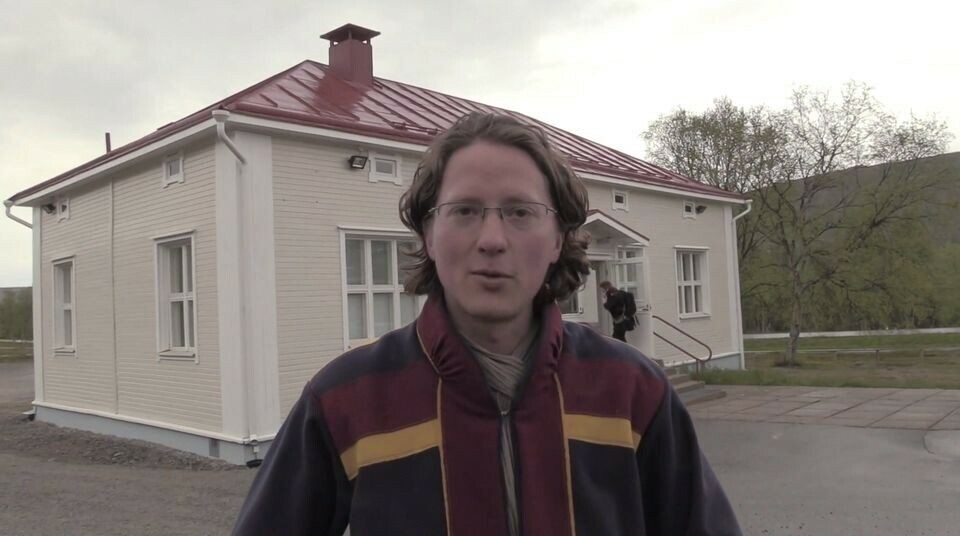
Local people demand full self-determination over the Teno river system
A group of local protesters and activists does not accept that the states try to control fishing and the management of fisheries in the River Teno (Tana). They are now collecting signatures for their declaration.
p.p1 {margin: 0.0px 0.0px 9.3px 0.0px; line-height: 16.0px; font: 13.3px Arial; color: #000000; -webkit-text-stroke: #000000; background-color: #ffffff}p.p2 {margin: 0.0px 0.0px 9.3px 0.0px; line-height: 24.0px; font: 20.7px Arial; color: #000000; -webkit-text-stroke: #000000; background-color: #ffffff}span.s1 {font-kerning: none}span.s2 {font-kerning: none; color: #222222; -webkit-text-stroke: 0px #222222}
p.p1 {margin: 0.0px 0.0px 14.7px 0.0px; line-height: 16.0px; font: 13.3px Arial; color: #000000; -webkit-text-stroke: #000000; background-color: #ffffff}p.p2 {margin: 0.0px 0.0px 0.0px 0.0px; line-height: 16.0px; font: 13.3px Arial; color: #000000; -webkit-text-stroke: #000000; background-color: #ffffff}p.p3 {margin: 0.0px 0.0px 14.3px 0.0px; line-height: 14.0px; font: 12.0px Times; color: #000000; -webkit-text-stroke: #000000; background-color: #ffffff}p.p4 {margin: 0.0px 0.0px 14.7px 0.0px; line-height: 24.0px; font: 20.7px Arial; color: #000000; -webkit-text-stroke: #000000; background-color: #ffffff}p.p5 {margin: 0.0px 0.0px 0.0px 0.0px; line-height: 19.0px; font: 16.0px ‘Times New Roman’; color: #000000; -webkit-text-stroke: #000000; background-color: #ffffff}p.p6 {margin: 0.0px 0.0px 0.0px 0.0px; line-height: 14.0px; font: 12.0px Times; color: #000000; -webkit-text-stroke: #000000; background-color: #ffffff; min-height: 14.0px}p.p7 {margin: 0.0px 0.0px 9.3px 0.0px; line-height: 16.0px; font: 13.3px Arial; color: #000000; -webkit-text-stroke: #000000; background-color: #ffffff}p.p8 {margin: 0.0px 0.0px 5.3px 36.0px; text-indent: -36.0px; line-height: 16.0px; font: 13.3px Arial; color: #000000; -webkit-text-stroke: #000000; background-color: #ffffff}span.s1 {font-kerning: none}span.s2 {font-kerning: none; color: #222222; -webkit-text-stroke: 0px #222222}span.s3 {font: 12.0px Times; font-kerning: none}span.s4 {font-kerning: none; color: #444444; -webkit-text-stroke: 0px #444444}span.Apple-tab-span {white-space:pre}
Text by p.p1 {margin: 0.0px 0.0px 0.0px 0.0px; font: 11.0px Helvetica; color: #000000; -webkit-text-stroke: #000000}span.s1 {font-kerning: none}Martta Alajärvi
At the end of June, people who oppose the new Teno River Fishery Agreement gathered in Utsjoki to discuss how to continue their work against the agreement. Over 50 people attended the meeting.
«The Teno river system belongs to the local people, the Sámi, who have the right and obligation to determine, manage, take care of, study and administer their own waters and revenue,» the group called Ellos Deatnu! (Long Live the River Teno!) says.
The local people and other activists do not accept the states’ attempt to control fishing and the management of fisheries in the River Teno.
«We don’t accept that states try to own and administer our lands and waters, the group continues.»
The meeting resulted in a declaration, in which the participants demand to have full control over the Teno river system. Áslat Holmberg, who chaired the open meeting, said that the group would start collecting more signatures in the declaration and try to get more support for the cause.
The moratorium on the island Čearretsuolu supported by the local people
DECLARATION AGREED UPON IN THE MEETING OF ELLOS DEATNU
- The Teno river system belongs to the people of the area, and they have the right and obligation to determine, manage, take care of, study and administer their own waters and the revenue from the river system.
- We don’t accept that states try to own and administer our lands and waters.
- The Teno river system and the activities connected with it are not to be controlled by states.
This story is originally posted at Yle Sapmi and re-published as part of Eyes on Barents, a collaborative partnership between news organizations and bloggers in the Barents region.















